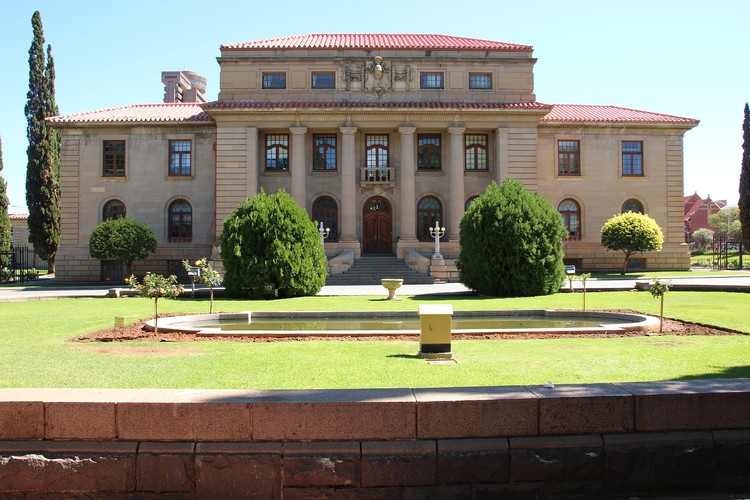Man ordered to pay over R3 million in maintenance arrears 29 years after divorce
Supreme Court of Appeal has ruled that maintenance orders will only prescribe after 30 years
The Supreme Court of Appeal has made a ruling with important consequences for some divorced couples. Photo: Ben Bezuidenhout via Wikimedia (CC BY-SA 4.0)
- The Supreme Court of Appeal has ruled that maintenance orders will only prescribe after 30 years, not three.
- The appeal court upheld a high court judgment that had ordered a man to pay arrears maintenance 25 years after his divorce.
- The man’s spouse had not previously taken steps to enforce the maintenance order.
The Supreme Court of Appeal has delivered an important judgment for spouses who have not timeously enforced maintenance orders after their divorce.
According to the judgment, written by Acting Justice John Smith, a maintenance order is a “judgment debt” in terms of the Prescription Act. (Prescription means that a legal claim will “expire” if it is not enforced within a specific time – usually three years.) This means that a maintenance order will only “prescribe” 30 years after the order is made and not three years.
The High Court case
In 1993, Simon and Jill Arcus divorced. They signed a consent paper which required Simon to pay monthly maintenance to his wife until she died or remarried. He was also required to pay maintenance for their two minor children until they became self-supporting. The consent paper was later made a court order.
Despite the court order, Simon failed to pay any maintenance to his former wife. He also failed to pay maintenance for their two children. The children became self-supporting in 2002 and 2005.
However, Jill Arcus did not take any steps to enforce the maintenance order. She only took steps to enforce the order in 2018, 25 years after her divorce.
In 2018, her lawyers wrote a letter of demand to her former husband for payment of the arrear maintenance, amounting to R3.5 million. He agreed to start paying her monthly maintenance, but refused to pay any arrears. He also started proceedings in the maintenance court for an order absolving him of his duty to any arrear maintenance to his former wife.
Jill Arcus then obtained a writ of execution authorising the Sheriff to sell her former husband’s assets for the arrear maintenance he owed her.
After she obtained the writ of execution, Simon Arcus went to the Cape Town High Court for an order declaring that any arrear maintenance he owed had prescribed under the Prescription Act, because the claim was not enforced timeously.
Acting Judge Mathew Francis dismissed his application. He said that an order for maintenance is not an “ordinary” debt in terms of the Prescription Act. Rather, an order for maintenance is a “judgment debt” which means that it will only prescribe after 30 years.
Simon Arcus appealed to the Supreme Court of Appeal (SCA).
Supreme Court of Appeal upholds judgment
On appeal, Simon Arcus made two primary arguments. Firstly, that the maintenance order was not a “judgment debt” because it was made in terms of an agreement and not in terms of a court order. Secondly, that it would be unfair to allow his former wife to enforce the claim for arrear maintenance so long after their divorce.
The SCA rejected these arguments. Acting Justice Smith said that it was irrelevant that the maintenance order arose from an agreement since the consent paper was made an order of court requiring Simon Arcus to pay maintenance to his wife and children.
Allowing a 30-year prescription period to enforce a claim for arrear maintenance would also be in the best interest of vulnerable people, such as divorced women and minor children.
The court also found that any unfairness in allowing a 30-year period to enforce a maintenance claim was exaggerated. “Such prejudice can be avoided by the debtor doing what all responsible citizens are supposed to do, namely to comply with court orders,” said AJ Smith.
Justice Baratang Mocumie and Acting Justice Kgoele concurred. They found it “extremely troubling” that Simon Arcus had argued that there should only be a three-year prescription period for maintenance claims.
“This will definitely cause hardship to the maintenance creditors as they will be compelled to approach the courts every three years to enforce their claims to avoid prescription,” they said.
The concurring judgment said it was important to recognise the gendered nature of the maintenance system when interpreting the Prescription Act in the context of the case.
Interpreting the Prescription Act to require only a three-year prescription period for a maintenance claim would “be to the disadvantage of a maintenance creditor and fly in the face of what the Maintenance Act was enacted to do, namely, to avoid the systemic failures to enforce maintenance orders and habitual evasion and defiance with relative impunity” they said.
Simon Arcus was ordered to pay the costs for the proceedings in the Supreme Court of Appeal.
Support independent journalism
Donate using Payfast

Next: Australian mining company’s “SLAPP case” against its critics heads to Concourt
Previous: Anti-vax employees can be suspended, says CCMA in second ruling
© 2022 GroundUp. This article is licensed under a Creative Commons Attribution-NoDerivatives 4.0 International License.
You may republish this article, so long as you credit the authors and GroundUp, and do not change the text. Please include a link back to the original article.
We put an invisible pixel in the article so that we can count traffic to republishers. All analytics tools are solely on our servers. We do not give our logs to any third party. Logs are deleted after two weeks. We do not use any IP address identifying information except to count regional traffic. We are solely interested in counting hits, not tracking users. If you republish, please do not delete the invisible pixel.

